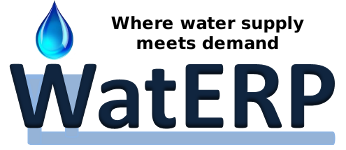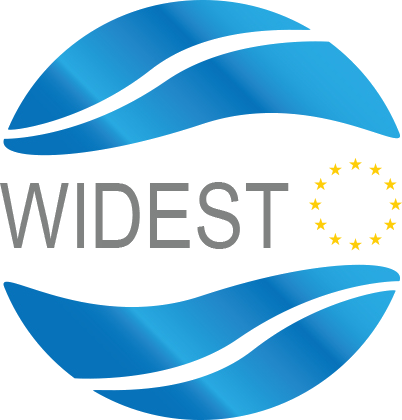
BluesCities
Blueprints for Smart Cities: Developing the methodology for a coordinated approach to the integration of the water and waste sectors within the EIP Smart Cities and Communities.
DAIAD
Will focus on real-time knowledge of residential water consumption. The goal is to research and develop innovative low cost, inclusive technologies for real-time, high granularity water monitoring and knowledge extraction to incur behavioural changes, water demand strategies and water pricing.
Effinet
To improve the efficiency of drinking water networks by managing better consumer behaviour via advanced metering, monitoring of user demand profiles, fault detection and predictive control techniques and integration of information stemming from various sources.
FreeWAT
The main goal of FREEWAT is to simplify the application of the water-related EU Directives, by using FREEWAT, a free and open source GIS-integrated modelling environment for simulation of quantity/quality of surface water and groundwater.
IceWater
To develop infrastructure for smart metering and real-time monitoring of water infrastructures, with the aim of lowering consumption during peak periods, detecting and localising leakages in real-time and optimising the water-energy nexus. Validation: Milan (IT) and Timisoara (RO).
ISSE-Watus
Will increase the awareness of water consumption via social media platform (smartphones, tablets) to reduce water consumption and will build a decision support system to reduce leaks. Coupling with adaptive pricing policy and reduction of peaks.
iWidget
To make households more aware of their water consumption patterns and help utilities and ICT industry with the sharing of such information in order to improve their demand forecasting capacities, while also contributing to a sustainable partnership of ICT and water domain stakeholders. Validation: Barcelos (PT) and Waterwise (Southern Water region UK)
Kindra
The overall objective of the project is to take stock of Europe's contemporary practical and scientific knowledge of hydrogeology research and innovation with the help of an inventory of research results, activities, projects and programmes, and then use the inventory to identify critical research challenges and gaps, with a view to avoiding overlaps.
Proteus
PROTEUS aims at delivering an autonomous, highly multifunctional MEMS and nano‐enabled microfluidic sensor node for adaptive and cognitive drink & waste water quality monitoring
Safe Water
SAFEWATER project is an FP7 security project with the overreaching aim of developing a comprehensive and pragmatic platform to manage the safety and security of drinking water, reducing the time to react and effectively respond to crisis. It is a 39 months project, which started in October 2013 and encompass the development of use cases, software and sensor developments as well as field trials in a range of different settings.
Smart H2O
Aims at providing an ICT enabled platform to design, develop and implement better water demand management in collecting user behavioural data due to smart meters and an online social participation application (social game). Awareness campaigns and price signals are delivered through the same app to inform the users on how to save water and money.
UrbanWater
To integrate advanced metering solutions, real-time communication of consumption patterns with predictive capability, adaptive pricing and customer empowerment tools.
WaterInneu
Applying European market leadership to river basin networks and spreading of innovation on water ICT models, tools and data.
Waternomics
Will enable the introduction of Demand Response principles and open business models through an innovative human centric approach that uses personalized water data, water availability based pricing, and gamification of water usage statistics.
WatERP
To develop a web-based, open management platform to enable water supply distribution chains to be managed in a coordinated and customised way, based on open interfaces and standards. The aim is to improve coordination among water management actors and to foster behavioural change in order to reduce water and energy consumption.
Widest
The project has the vision of establishing and supporting a thriving, interconnected ICT for water community to promote the dissemination and exploitation of EU funded activities and results in this area.
Wisdom
Will increase user awareness, significant reduction of water consumption, peak-period reduction of water and energy distribution loads, improved resource efficiency and business operations of water utilities due to ICT, and contribute to the improvement of the environmental performance of buildings.
















